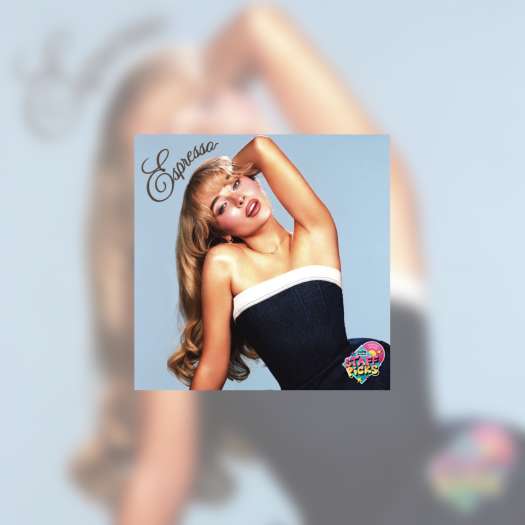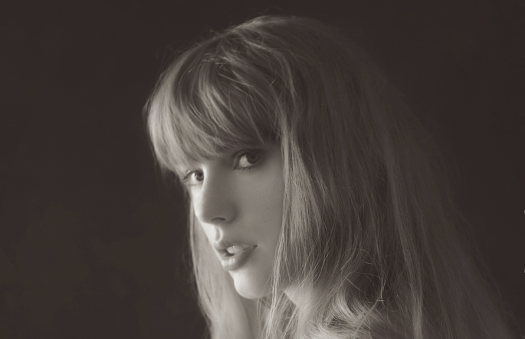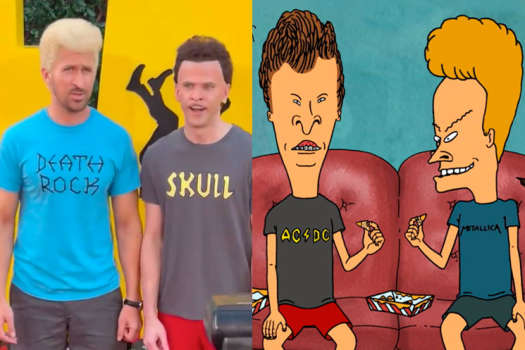Keanu Reeves knows a thing or two about dystopian hellscapes, right? The star of The Matrix and Matthew Perry's nemesis is pretty familiar with digitally constructed deception that makes us question the very fabric of reality — but even he seems alarmed by the latest advancements that are enabling the creation of disturbingly realistic deepfakes, AI-generated lyrics and the like.
In a new interview with WIRED, the actor discussed the rapid rate at which artificial intelligence and other technology is evolving alongside John Wick franchise director Chad Stahelski.
"I'm interested in the storytelling of humans and their interactions with technologies," Reeves told journalist Angela Watercutter of his affinity for sci-fi, before discussing the clause he put in his contracts years ago that prohibits the digital manipulation of his performances.
"I don't mind if someone takes a blink out during an edit. But early on, in the early 2000s, or it might have been the '90s, I had a performance changed," he explained, unwilling to divulge which one. "They added a tear to my face, and I was just like, 'Huh?!' It was like, I don't even have to be here."
Of deepfakes à la Bruce Willis, Reeves expressed understandable concern. "What's frustrating about that is you lose your agency," he said. "When you give a performance in a film, you know you're going to be edited, but you're participating in that. If you go into deepfake land, it has none of your points of view. That's scary."
The actor continued, "It's going to be interesting to see how humans deal with these technologies. They're having such cultural, sociological impacts, and the species is being studied. There's so much 'data' on behaviours now. Technologies are finding places in our education, in our medicine, in our entertainment, in our politics, and how we war and how we work."
Reeves went on to make an anecdote about the generation gap in how we value art, as well as the general language one that seems to arise specifically when attempting to explain the plot of The Matrix, saying:
I was trying to explain the plot of The Matrix to this 15-year-old once, and that the character I played was really fighting for what was real. And this young person was just like, "Who cares if it's real?" People are growing up with these tools: We're listening to music already that's made by AI in the style of Nirvana, there's NFT digital art. It's cool, like, Look what the cute machines can make! But there's a corporatocracy behind it that's looking to control those things. Culturally, socially, we're gonna be confronted by the value of real, or the nonvalue. And then what's going to be pushed on us? What's going to be presented to us?
He concluded, "The people who are paying you for your art would rather not pay you. They're actively seeking a way around you, because artists are tricky. Humans are messy. We push back, we have our own ideas."
Watercutter quipped that now ChatGPT can write scripts by combining other ideas, Reeves thoughtfully added, "Which is cool, because that's what artists do, right? We take our influences and we synthesize them. But what's the intention behind that synthesis?"
And it's also worth noting that anything AI-generated tends to become bigoted pretty quickly. Thanks, internet.
In a new interview with WIRED, the actor discussed the rapid rate at which artificial intelligence and other technology is evolving alongside John Wick franchise director Chad Stahelski.
"I'm interested in the storytelling of humans and their interactions with technologies," Reeves told journalist Angela Watercutter of his affinity for sci-fi, before discussing the clause he put in his contracts years ago that prohibits the digital manipulation of his performances.
"I don't mind if someone takes a blink out during an edit. But early on, in the early 2000s, or it might have been the '90s, I had a performance changed," he explained, unwilling to divulge which one. "They added a tear to my face, and I was just like, 'Huh?!' It was like, I don't even have to be here."
Of deepfakes à la Bruce Willis, Reeves expressed understandable concern. "What's frustrating about that is you lose your agency," he said. "When you give a performance in a film, you know you're going to be edited, but you're participating in that. If you go into deepfake land, it has none of your points of view. That's scary."
The actor continued, "It's going to be interesting to see how humans deal with these technologies. They're having such cultural, sociological impacts, and the species is being studied. There's so much 'data' on behaviours now. Technologies are finding places in our education, in our medicine, in our entertainment, in our politics, and how we war and how we work."
Reeves went on to make an anecdote about the generation gap in how we value art, as well as the general language one that seems to arise specifically when attempting to explain the plot of The Matrix, saying:
I was trying to explain the plot of The Matrix to this 15-year-old once, and that the character I played was really fighting for what was real. And this young person was just like, "Who cares if it's real?" People are growing up with these tools: We're listening to music already that's made by AI in the style of Nirvana, there's NFT digital art. It's cool, like, Look what the cute machines can make! But there's a corporatocracy behind it that's looking to control those things. Culturally, socially, we're gonna be confronted by the value of real, or the nonvalue. And then what's going to be pushed on us? What's going to be presented to us?
He concluded, "The people who are paying you for your art would rather not pay you. They're actively seeking a way around you, because artists are tricky. Humans are messy. We push back, we have our own ideas."
Watercutter quipped that now ChatGPT can write scripts by combining other ideas, Reeves thoughtfully added, "Which is cool, because that's what artists do, right? We take our influences and we synthesize them. But what's the intention behind that synthesis?"
And it's also worth noting that anything AI-generated tends to become bigoted pretty quickly. Thanks, internet.




